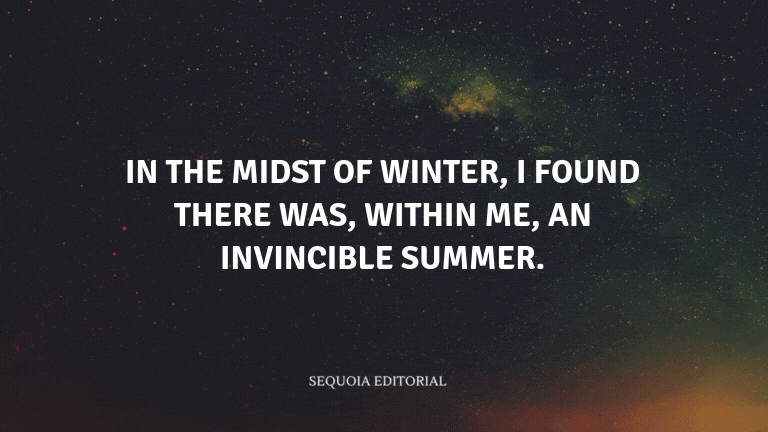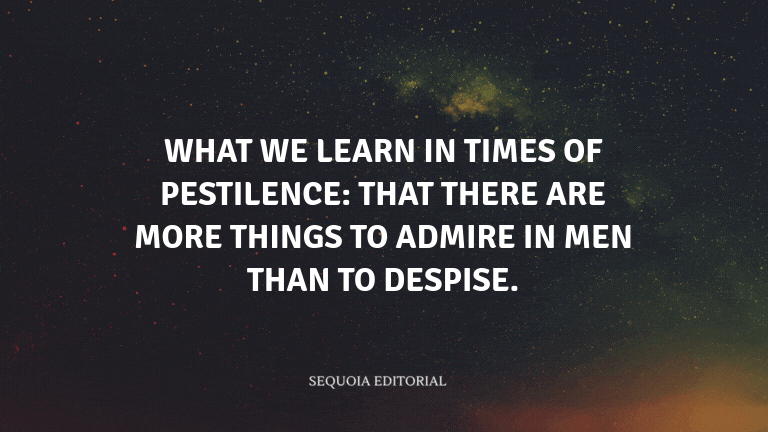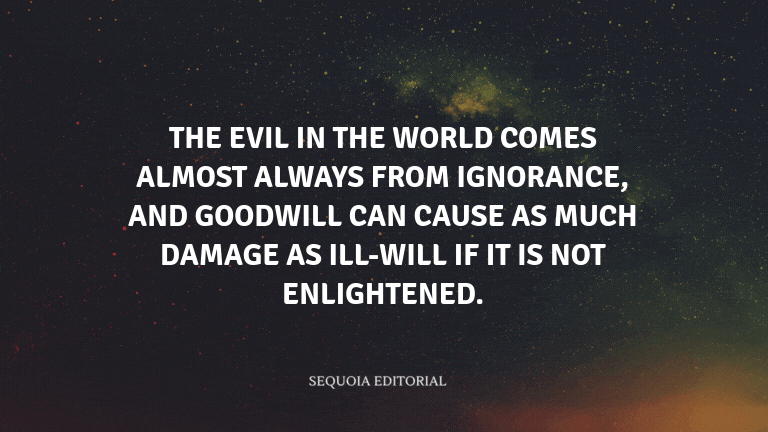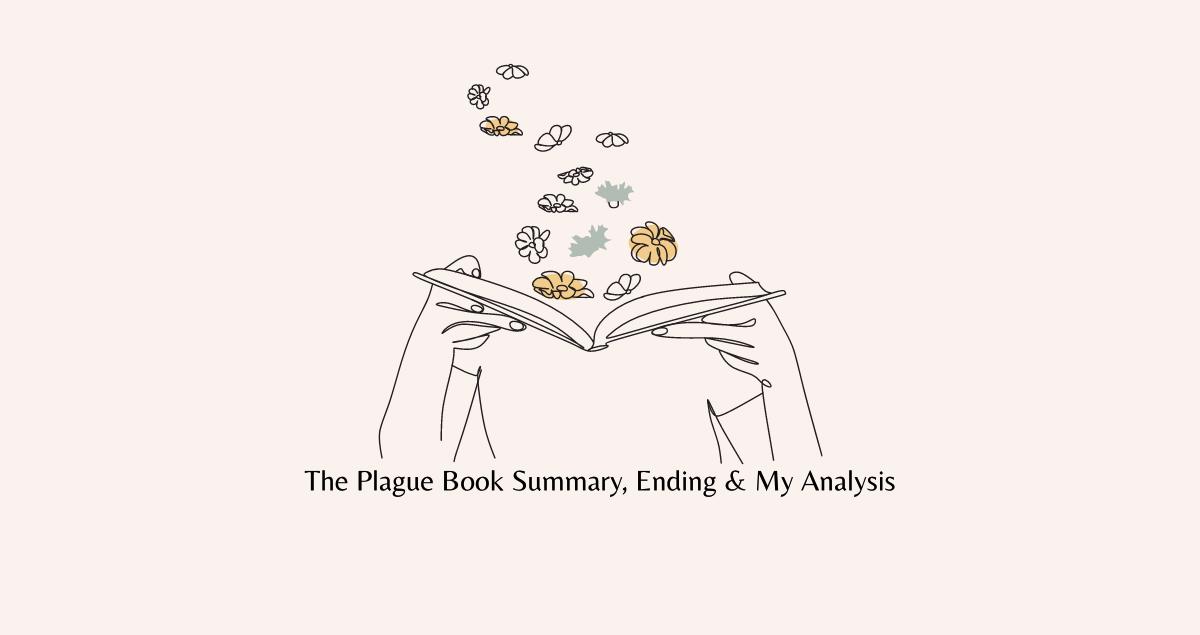The Plague is about the small coastal town of Oran, which is struck by a deadly plague. The story follows Dr. Rieux and his colleagues as they struggle to contain the epidemic and maintain their humanity in the face of widespread suffering and death.
Table of Content
The Plague Book Summary
The town of Oran is suddenly overwhelmed by a mysterious plague. Rats begin to die in large numbers, and soon the citizens of Oran succumb to fever and swelling, spreading panic throughout the town.
Dr. Rieux and his colleagues work tirelessly to treat the sick, while the town is quarantined. The narrative shifts between their efforts and the experiences of the townspeople as they grapple with the reality of the plague.
As the death toll rises, the characters are forced to confront their own beliefs and actions. Tarrou organizes volunteer groups, while Rambert desperately seeks a way to escape the town to rejoin his loved one. Grand, a civil servant, is consumed by his work and his failed attempts at rewriting a letter to his wife.
Father Paneloux preaches about the plague as divine punishment, leading to introspection among the townspeople about their faith and the nature of suffering.
The plague's relentless grip on the town becomes a metaphor for the absurdity and the human condition as the characters struggle to find meaning and hope in the face of overwhelming despair.
Dr. Rieux's daily log of the plague's progress becomes a record of the town's suffering. Cottard, a man with a criminal past, starts to thrive in the chaos, selling contraband goods to the desperate townspeople.
As time stretches on, Rambert becomes determined to escape Oran and returns to his work as a journalist. He is eventually offered a chance to leave, but confronted with the suffering of the town, he decides to stay and help fight the plague.
The story takes a turn when the plague begins to recede, bringing a false sense of security. However, it returns with equal ferocity, shattering the hope that the worst is over.
Paneloux himself succumbs to the plague, leading to even deeper reflection among the townspeople about the presence of God in the face of such relentless suffering.
The efforts of Dr. Rieux and his colleagues begin to take effect, and the number of new cases slowly decreases. The town is eventually freed from quarantine, and life begins to return to normal.
Reflecting on the town's ordeal, Rieux concludes that the only means of fighting the plague is through common decency and everyday heroism. The experience has left an indelible mark on those who survived, shaping their understanding of the world and their place in it.
The narrative ends with Rieux reflecting on the lessons learned from the plague, emphasizing the importance of cherishing life and the human capacity for resilience in the face of overwhelming odds.
The Plague Quotes
- In the midst of winter, I found there was, within me, an invincible summer.

- What we learn in times of pestilence: that there are more things to admire in men than to despise.

- The evil in the world comes almost always from ignorance, and goodwill can cause as much damage as ill-will if it is not enlightened.

The Plague Ending Explained
At the end of The Plague, the town of Oran is finally freed from the grip of the epidemic. The quarantine is lifted, and the people begin to rebuild their lives after months of suffering and loss.
Dr. Rieux, the novel's protagonist, reflects on the lessons learned from the plague. He emphasizes the importance of cherishing life and the human capacity for resilience in the face of overwhelming odds. The town's experience with the plague has forever changed those who lived through it.
Rieux's chronicles of the plague become a philosophical reflection on the nature of human suffering and the quest for meaning in a world that often seems devoid of it.
Characters in book The Plague
- Dr. Bernard Rieux: A dedicated physician who works tirelessly to treat the victims of the plague and to curtail its spread.
- Jean Tarrou: A vacationer in the town who assists Dr. Rieux and his team in their fight against the plague.
- Joseph Grand: A civil servant with a passion for literature who is working on a novel, and who becomes Dr. Rieux's friend.
- Raymond Rambert: A journalist who becomes trapped in Oran by the quarantine and desperately seeks a way to escape.
- Father Paneloux: A Jesuit priest who delivers sermons on the plague's significance and the struggle to maintain faith in times of crisis.
- Cottard: A former criminal who is terrified of being arrested and is deeply affected by the plague's presence.
Key Lessons
- Adversity Reveals True Character: When faced with difficult situations, one's true nature is often revealed through their actions and choices.
- Value of Solidarity: In times of crisis, the strength and support found in the unity of people can be a powerful force against suffering and despair.
- The Illusion of Control: Despite our best efforts, there are events in life that are beyond our control, and accepting this is pivotal to dealing with them.
- Mortality's Reminder: Awareness of our mortality can serve to enrich our lives and remind us of the preciousness of each moment.
- Existential Reflection: The search for meaning in the face of suffering is a fundamental human pursuit that can lead to profound self-discovery.
My Personal Opinion
Is The Plague worth reading? Absolutely! I found it to be a deeply moving and thought-provoking novel that offers a profound meditation on the human condition.
I was struck by the novel's stark portrayal of the impact of a catastrophic event on a community, and how individuals respond to such crises. The book's exploration of existential themes is both compelling and universal. However, I did find the narrative style, with its relentless focus on the plague's effects, to be quite heavy at times.
I would recommend The Plague to readers who are interested in philosophical literature and are open to thought-provoking reflections on the nature of suffering and human existence. It is a challenging read, but one that offers deep rewards for those willing to engage with its themes.

